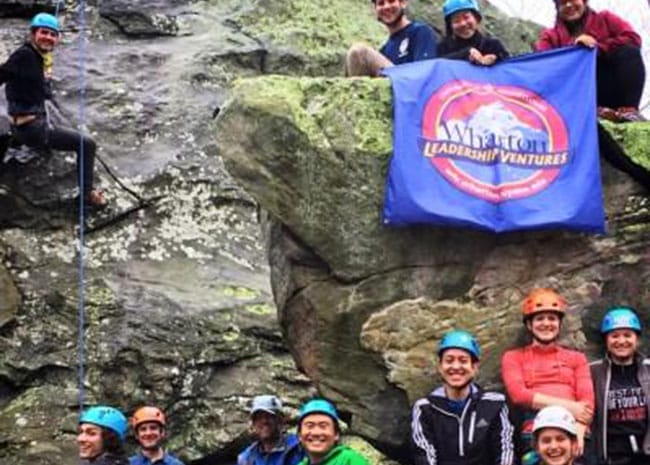At Wharton, we value education. Given that Penn is a university, this fact seems perfectly obvious. However, the type of education we value might surprise you. While we take learning in the classroom very seriously, Wharton is committed to providing students with opportunities to learn outside of the classroom as well. While plenty of academic institutions value textbook knowledge, Wharton recognizes and values the importance of experiential education.
I was blessed with parents who are teachers and appreciate the value of learning by doing. When I came to Penn, I was shocked to find that not only does Wharton offer experiential leadership programs, but they are free. The School so strongly believes in learning by making decisions and seeing their consequences that they fund these programs.
As a member of the Wharton Leadership Ventures (WLV) Board, I engage with students from different backgrounds and circumstances. The diversity of our programs and participants allows for a wide array of knowledge to influence the ventures we facilitate. Whether it’s rafting, sailing or storytelling, our ventures push students to make decisions with observable consequences. We then take the time to discuss what drove those decisions, whether they were expected or not, how they relate to business and how they relate to life.
WLV experiences put people in situations outside of their comfort zones. We challenge, motivate and discuss to create an environment in which we take chances, make mistakes and, most importantly, learn.
Here are my fundamentals for experiential learning:
Communicate.
This is number one for a reason. Communication is the most essential strategy to creating an effective learning environment. Be clear, concise and constructive.
Don’t make assumptions.
Don’t ever assume what someone (including yourself) knows or doesn’t know. Don’t assume you know someone until you actually do.
Create trust in a group.
You must demonstrate it and make yourself vulnerable.
Pay attention to actions and words.
Being able to draw on specific instances will allow for better discussion after.
Be transparent.
Let people see your successes and failures, as well as your thought processes. All of these make for great learning opportunities.
Don’t fear failure.
Rather, embrace the failures and learn as much as you can from them. Of course, make sure to celebrate your successes.
Editor’s note: The original version of this post first appeared on Wharton Undergraduate Program’s Student Voices blog on Sept. 4, 2015.


























